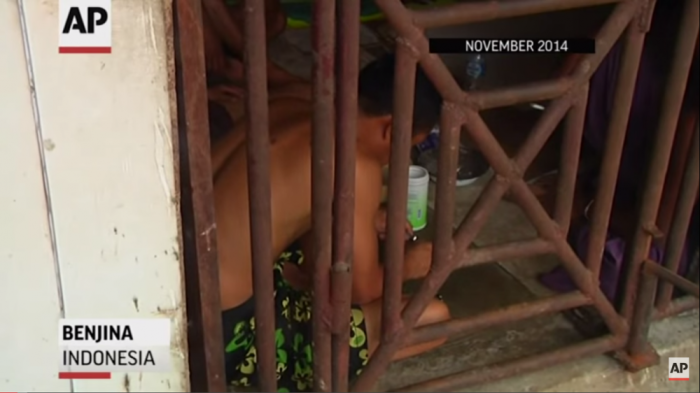300 Slaves Rescued From Indonesian Island Where They Were Caged, Beaten, Electrocuted

As many as 300 slaves were rescued on Good Friday from an isolated island in Indonesia, where they were forced to work as fisherman and catch seafood that was eventually sold in supermarkets in the United States.
An investigation by the Associated Press revealed that many of the migrant workers, who eventually wound up on the Indonesian island of Benjina and were duped into working 20 to 22 hours a day in unpaid slave labor, were tricked into going to that particular island.
With many of the migrant workers coming from Burma, also known as Myanmar, in search of job opportunities, many of them were told that they would be offered good-paying jobs in Thailand. Instead, they were fooled into hopping on a boat, which took them thousands of miles from their homes and dumped them on the island with no way to return home. They were then forced to catch fish without pay for the Pusaka Benjina Resources fishing company. The fish they catch are then sent back to Thailand and shipped to supply chains.
After the AP investigation shed light on the abusive labor practices of the company, officials from the Indonesian Fisheries Ministry went to the island to issue a crackdown on poaching and were originally only going to rescue about 20 people from the island. As word got out that some of the workers were going to be able to leave the island, slaves from all over the island rushed to the boat hoping that they too would be freed from the island.
Asep Burhanuddin, the general director of Indonesia's Marine Resources and Fisheries Surveillance, assured that not a single person that wanted to leave would be left behind. The migrant workers then rushed to gather what little belongings they had and rushed back out of fear that they would be left behind.
"They can all come," Burhanuddin told AP. "We don't want to leave a single person behind."
The workers were loaded onto seven trawlers and were shipped to Tual over a period of 24 hours. Once off the island, the migrant workers stayed at the Fisheries Ministry complex until their identities were verified and their countries of origin were contacted.
A 42-year-old from Burma named Win Win Ko, who left his home and family over four years ago in search of a job, described the kind of treatment that he and many of the other workers faced at the hands of their Thai boat captains.
Ko explained that he now has a toothless mouth after having his teeth kicked in by the boat captain after he decided that Ko was not processing the fish fast enough from the deck of the boat to the hold down below.
"I will go see my parents," Ko told AP. "They haven't heard from me, and I haven't heard from them since I left."
The AP investigation also found that some of the workers were kept in cages, electrocuted, beaten, whipped, and forced to suffer through other various types of brutal mistreatment. Additionally, the workers were not provided with medicine when they fell ill.
The investigation also tracked where the fish that were caught using the slave labor on Benjina island ended up. The investigation, which used satellites to track the seafood's journey on cargo ships, found that the seafood was sold to a few of America's largest seafood supply chains like Walmart, Kroger, Albertsons and Safeway. Also, the seafood is likely to end up in a number of American petfood brands like Fancy Feast, Meow Mix and Iams.
The AP report prompted U.S. government officials and seafood industry elites to pressure Thailand to issue a ban on slave labor at sea and punish those responsible for using such practices.
Police are investigating the claims of slavery and a decision will be made whether or not to prosecute those responsible, Kedo Arya, head of Maluku province prosecutor's office told AP.
The International Organization for Migration estimates that about 4,000 people are being victimized by abusive labor practices in the fishing industry surrounding the areas of Benjina.




























